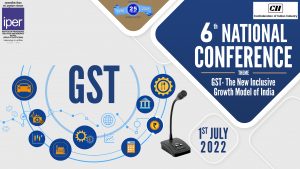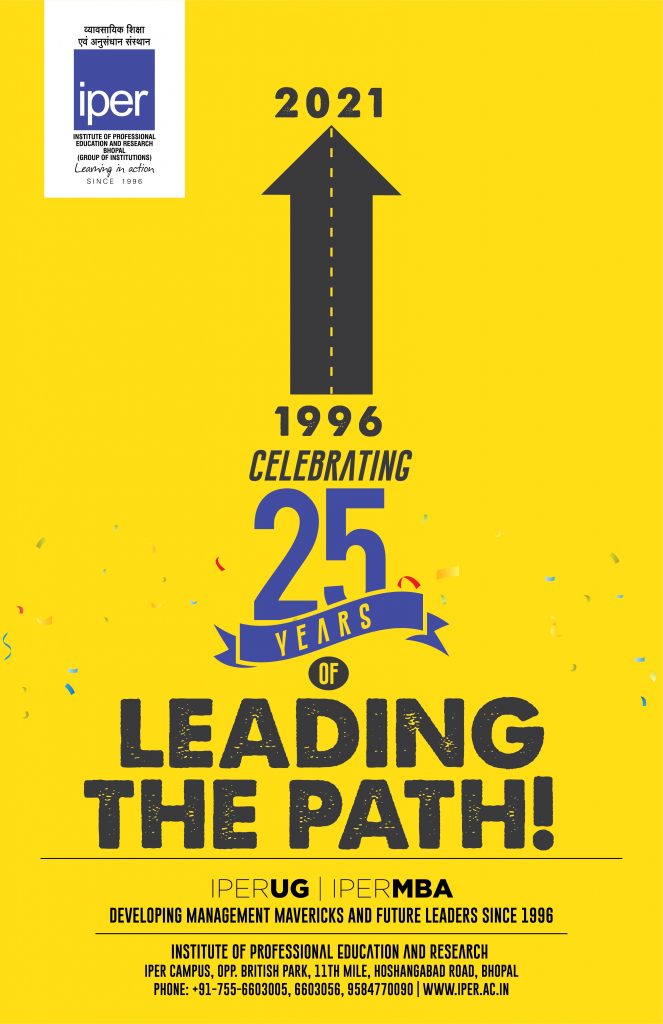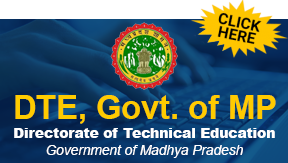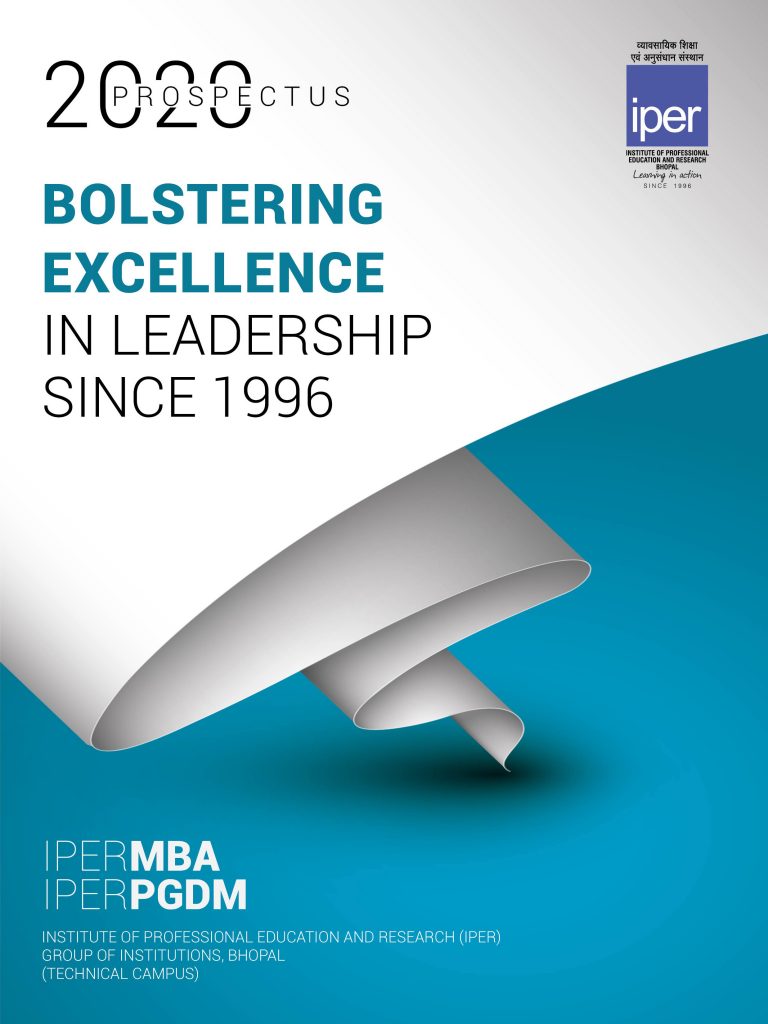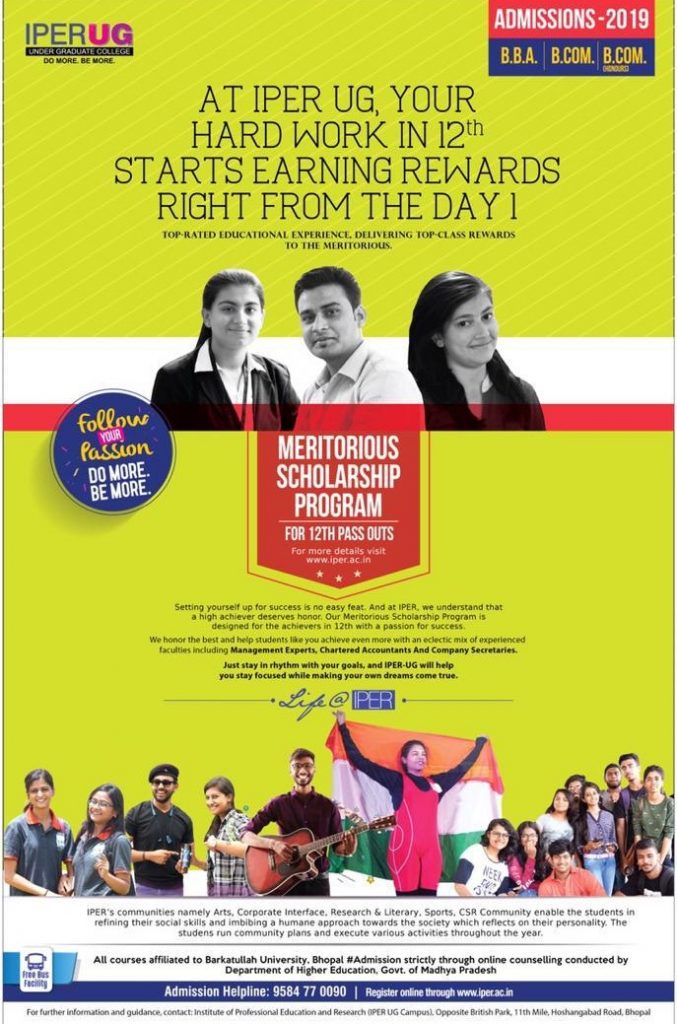FDP #1
IPER Group of Institutions organized an eight-day Faculty Development Program (FDP) for the faculties of the MBA Program. The program aimed to enhance the skills and knowledge of the faculty members in case discussion on topical issues in management functions. The FDP focused on a contemporary approach to case analysis, with an emphasis on valuation through the DDAA approach. The program comprised both theoretical sessions and practical case discussions.
Session 1: Valuation by the DDAA Approach
On the 23rd of February 2023, Dr. Amarjeet Singh Khalsa, Group Director, IPER Group of Institutions and a renowned expert in the field of valuation, served as the resource person for the session. The venue for the session was the IPER – MBA Seminar Hall-1. The session provided a comprehensive understanding of the DDAA approach to valuation. Dr. Khalsa shared his expertise and insights, enabling the participating faculty members to grasp the intricacies of this contemporary valuation method.
Session 2: Case Discussion on Cadila Healthcare Limited
On the 27th of February 2023, the faculty members reconvened at the same venue for a case discussion on Cadila Healthcare Limited, focusing on intrinsic and relative valuation. Dr. Amarjeet Singh Khalsa once again led the session, guiding the participants through a practical application of the DDAA approach in valuing a real-world company. This interactive case discussion allowed the faculty members to apply their newly acquired knowledge and engage in thoughtful analysis and debate.
Participant Engagement:
A total of 48 faculty members actively participated in the introductory session and subsequent case discussion. The engaging and interactive nature of the sessions provided a conducive environment for intellectual exchange and collaborative learning. The faculty members expressed their appreciation for the program, highlighting its relevance and the practical insights gained.
Conclusion:
The Faculty Development Program on “A Contemporary Approach to Case Discussion on Topical Issues in Management Functions” conducted by IPER Group of Institutions proved to be a valuable initiative. The program equipped the faculty members with the necessary skills and knowledge to conduct effective case discussions in their MBA program. By leveraging the DDAA approach to valuation and analysing a real-life case, the participants gained practical insights into contemporary management practices.
This FDP served as an ideal platform for faculty members to enhance their teaching capabilities and stay updated with the latest trends in management education. The IPER Group of Institutions must be commended for organizing such a fruitful program that contributed significantly to the professional development of the participating faculty members.
Overall, the FDP was a resounding success, fostering an environment of continuous learning and knowledge sharing among the faculty members. It is expected that the insights gained from this program will be beneficial in elevating the quality of education imparted to the MBA students and contribute to the overall growth and success of IPER Group of Institutions.
Valuation is a crucial aspect of business decision-making and financial analysis, especially in the current business landscape. MBA students need to develop a deep understanding of valuation techniques to make informed decisions regarding investments, acquisitions, and financial planning.
In conclusion, in today’s competitive business environment, valuation skills are invaluable for MBA students. By mastering the art of valuation, they can critically evaluate business opportunities, understand the drivers of value creation, and contribute effectively to financial decision-making in various organizational contexts.
FDP #2
IPER Group of Institutions recently organized an eight-day Faculty Development Program (FDP) for the faculties of the MBA Program.
The Importance of Business Models for MBA Students:
Business models serve as the foundation of any organization’s strategic framework, defining how it creates, delivers, and captures value. For MBA students, understanding business models is paramount as they embark on their journey as future business leaders. Knowledge of business models equips students with a comprehensive understanding of how organizations function and create sustainable competitive advantages.
The contemporary business landscape demands a dynamic approach to business models, one that incorporates sustainability principles. MBA students need to recognize the significance of integrating environmental, social, and governance considerations into the fabric of their organizations. By understanding the alignment between business models and sustainability, students can develop innovative strategies that create long-term value while addressing societal and environmental challenges.
Session 1: Business Model – The Sustainability Alignment:
On the 17th of February 2023, the faculty members gathered at the IPER – MBA Seminar Hall-1 for an enlightening session on aligning business models with sustainability. Dr. Mahesh Soni, a distinguished expert in the field, served as the resource person for the session. The participants delved into the significance of integrating sustainability principles into business models to foster environmental stewardship and social responsibility. Dr. Soni provided valuable insights on developing sustainable business strategies that drive competitive advantage and address societal needs.
Session 2: Case Discussion on Amazon Food – Biting Into The Food Delivery Market in India:
Continuing the FDP, on the 2nd of March 2023, the faculty members reconvened at the same venue for a case discussion on Amazon Food’s entry into the food delivery market in India. This practical case study allowed participants to apply the knowledge gained during the sustainability-aligned business model session. Dr. Mahesh Soni led the session, encouraging critical thinking and fostering lively discussions among the faculty members.
Engagement and Participation:
A total of 48 faculty members actively participated in the introductory session and subsequent case discussions. The engaging nature of the FDP fostered a collaborative learning environment, enabling faculty members to share their insights and experiences. The program generated enthusiasm among the participants, who expressed their appreciation for the opportunity to enhance their case discussion skills and develop a sustainability-focused mindset.
Conclusion:
The Faculty Development Program on “A Contemporary Approach to Case Discussion on Topical Issues in Management Functions” organized by IPER Group of Institutions proved to be a valuable platform for faculty members to enhance their knowledge and skills in case discussion techniques. The sessions on business model alignment with sustainability principles, conducted by Dr. Mahesh Soni, provided valuable insights into creating sustainable business strategies.
By integrating sustainability into business models, MBA students can contribute to building organizations that not only achieve financial success but also demonstrate environmental stewardship and social responsibility. This FDP played a pivotal role in equipping faculty members with the necessary tools and perspectives to guide MBA students in creating sustainable, innovative, and socially responsible business models.
Overall, the FDP was a resounding success, empowering faculty members to embrace a contemporary approach to case discussion and cultivate a sustainability-oriented mindset. IPER Group of Institutions is commended for its commitment to providing quality faculty development programs that enhance the educational experience and foster excellence in management education.
FDP #3
IPER Group of Institutions recently conducted an eight-day Faculty Development Program (FDP) for the faculties of the MBA Program. The FDP focused on the critical area of brand management in the digital era. The program aimed to equip faculty members with the knowledge and skills to navigate the evolving landscape of brand management in the digital age. The FDP included theoretical sessions and practical case discussions, providing a comprehensive understanding of brand management strategies and their application in the digital era.
The Importance of Brand Management in the Digital Era for MBA Students:
In today’s digitalized world, brand management has become more complex and challenging. MBA students need to grasp the significance of effective brand management strategies in the digital era. Brands now operate in an interconnected and technologically advanced landscape, where consumer behavior and communication channels have undergone significant transformations. By understanding brand management in the digital era, MBA students can develop the skills necessary to build and maintain strong, relevant, and engaging brands.
Session 1: Brand Management in the Digital Era:
On the 22nd of February 2023, faculty members gathered at the IPER – MBA Seminar Hall-1 for a session on brand management in the digital era. Dr. Hersh Sharma, an esteemed expert in the field, led the session as the resource person. The session explored the key concepts and strategies involved in managing brands in the digital era. Participants delved into topics such as brand positioning, brand identity, brand communication, and leveraging digital platforms for brand building.
Session 2: Case Discussion on Gucci – Staying Relevant in Luxury Over a Century:
Continuing the FDP, on the 4th of March 2023, the faculty members reconvened at the same venue for a case discussion on Gucci, focusing on how the luxury brand has stayed relevant in the digital era. Dr. Hersh Sharma facilitated the session, encouraging participants to analyze Gucci’s brand management strategies in the context of digital advancements. This interactive case discussion allowed faculty members to explore the challenges and opportunities of managing a luxury brand in a rapidly evolving digital landscape.
Engagement and Participation:
A total of 48 faculty members actively participated in the introductory session and subsequent case discussion. The engaging nature of the FDP encouraged a lively exchange of ideas, enabling faculty members to share their insights and perspectives on brand management in the digital era. The program fostered an environment of collaborative learning, empowering faculty members to enhance their knowledge and skills in this critical area.
Conclusion:
The Faculty Development Program on Brand Management in the Digital Era organized by IPER Group of Institutions successfully addressed the challenges and opportunities of managing brands in the digital age. The sessions conducted by Dr. Hersh Sharma provided valuable insights into the intricacies of brand management strategies in the digital era.
By understanding the nuances of brand management in the digital era, MBA students can develop the competencies required to create and sustain strong brands in today’s highly connected and technologically advanced marketplace. This FDP played a crucial role in equipping faculty members with the necessary knowledge and skills to guide MBA students in building impactful and relevant brands in the digital era.
Overall, the FDP was a resounding success, empowering faculty members to embrace the complexities of brand management in the digital era and providing them with the tools and perspectives to foster excellence in this field. IPER Group of Institutions is commended for its commitment to providing quality faculty development programs that enhance the educational experience and contribute to the advancement of management education.
FDP #4
IPER Group of Institutions organized an eight-day Faculty Development Program (FDP) for the faculties of the MBA Program, focusing on the emerging field of HR Analytics. The program aimed to equip faculty members with the necessary knowledge and skills to harness the power of data in human resource management. Through theoretical sessions and practical case discussions, the FDP provided insights into the application of HR analytics in decision-making and strategic HR planning.
The Importance of HR Analytics for MBA Students:
In the modern business landscape, organizations recognize the value of data-driven decision-making in every aspect of their operations, including human resources. MBA students must comprehend the importance of HR analytics in enabling evidence-based decision-making and improving organizational performance. By understanding HR analytics, students can effectively analyze and interpret HR data to make informed decisions, optimize HR processes, and align human resource strategies with organizational goals.
Session 1: HR Analytics:
On the 25th of February 2023, the faculty members convened at IPER for a session on HR analytics. Dr. Vaibhav Lowlekar, an expert in research, analytics, and statistics, served as the resource person. The session explored the fundamental concepts and methodologies of HR analytics, emphasizing its role in driving organizational success. Participants gained insights into data collection, data analysis techniques, and the interpretation of HR metrics to enhance decision-making in various HR domains.
Session 2: Case Discussion on “Apturja Power Limited: Human Resources Analytics”
Continuing the FDP, on the 7th of March 2023, the faculty members engaged in a case discussion on “Apturja Power Limited: Human Resources Analytics.” Dr. Vaibhav Lowlekar facilitated the session, allowing participants to apply their knowledge of HR analytics in a practical context. The case study highlighted the strategic use of HR analytics in optimizing workforce planning, talent acquisition, performance management, and employee engagement. This interactive case discussion enabled faculty members to gain hands-on experience in analyzing HR data and making data-driven HR decisions.
Engagement and Participation:
A total of 48 faculty members actively participated in the introductory session and subsequent case discussion on HR analytics. The FDP fostered a collaborative learning environment, encouraging faculty members to share their insights and experiences. The program generated enthusiasm among the participants, who recognized the immense potential of HR analytics in improving HR practices and contributing to organizational success.
Conclusion:
The Faculty Development Program on HR Analytics conducted by IPER Group of Institutions offered valuable insights into the significance of HR analytics in modern organizations. The sessions led by Dr. Vaibhav Lowlekar equipped faculty members with the knowledge and skills to leverage HR analytics effectively.
By understanding HR analytics, MBA students can contribute to organizational growth by making data-driven HR decisions. The ability to analyze HR data, identify patterns, and derive actionable insights will enable students to optimize talent management, enhance employee engagement, and align HR strategies with organizational goals.
Overall, the FDP was a resounding success, empowering faculty members to embrace the power of HR analytics and enhancing their proficiency in this emerging field. IPER Group of Institutions is commended for its commitment to providing quality faculty development programs that foster excellence in management education and equip faculty members with the latest industry-relevant knowledge.
Faculty Development Program on Technology Tools for Education
Introduction:
The IPER Group of Institutions organized a six-day Faculty Development Program (FDP) for the faculties of the MBA Program, focusing on “Technology Tools for Education.” The objective of the program was to equip faculty members teaching in educational institutions with the necessary technology tools to enhance the classroom experience. The FDP aimed to familiarize participants with various technology tools and their practical application in educational settings.
The Importance of Tech Tools for Teaching for MBA Students:
In the digital age, technology has become an integral part of the educational landscape. MBA students pursuing careers in academia or those seeking to enhance their teaching capabilities must understand the importance of incorporating technology tools in their teaching methodologies. By embracing tech tools for teaching, MBA students can create engaging learning environments, leverage interactive multimedia resources, foster collaboration, and adapt to the evolving needs and preferences of modern learners.
Tech Tools for Teaching: Empowering Educators and Enhancing Classroom Experience:
The six-day FDP on technology tools for education provided faculty members with hands-on training and insights into various tools that can transform the classroom experience. Prof. Anil Purushothaman, an expert in tech tools and the EdTech industry, served as the resource person, guiding the participants through practical sessions and fostering a collaborative learning environment.
Throughout the FDP, participants explored a range of tech tools, such as Google Sites, Google Slides, Google Classroom, and open-source tools for the flipped classroom model. These tools enable educators to create interactive class websites, develop engaging presentations, manage virtual classrooms, facilitate flipped learning experiences, and evaluate student performance effectively.
The FDP schedule included dedicated sessions for hands-on practice, advanced techniques, and integrating educational apps with the tech tools. Participants actively engaged in creating class websites, utilizing audio-visual content, setting up Google Classroom, implementing flipped classroom approaches, and evaluating student progress through Google Forms and rubrics.
The Impact of Tech Tools for Teaching on MBA Students:
MBA students will greatly benefit from faculty members who have acquired expertise in tech tools for teaching. Incorporating technology into the classroom enhances their learning experience, fosters critical thinking, and prepares them for the digital workplace. Tech tools facilitate the delivery of engaging lectures, collaborative group work, and interactive discussions, enabling students to develop essential skills in problem-solving, communication, and information literacy.
Moreover, exposure to tech tools for teaching equips MBA students with a competitive edge in the job market. Employers increasingly value candidates who possess digital fluency and can effectively integrate technology into their professional practice. By experiencing innovative teaching methodologies driven by tech tools, MBA students are better prepared to adapt to the digital transformation occurring in various industries.
Conclusion:
The Faculty Development Program on Technology Tools for Education conducted by IPER Group of Institutions provided faculty members with invaluable insights into incorporating tech tools into their teaching methodologies. The program equipped participants with the necessary knowledge and skills to create interactive and engaging learning experiences for MBA students.
By embracing technology tools for teaching, MBA students will benefit from a dynamic learning environment that fosters collaboration, critical thinking, and digital literacy. The use of tech tools prepares them to thrive in the digital age and positions them for success in their future careers.
The IPER Group of Institutions is commended for its commitment to fostering excellence in education through relevant faculty development programs that empower educators with the latest tools and techniques.
